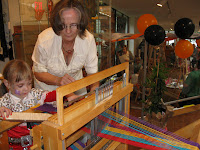
A sad consequence of our budget crisis" is a callous and ill-considered opinion piece that shamelessly panders to an angry public faced with an economic debacle that was decades in the making. Most notably, The Ledger fails to recognize that state funding for the arts comes not from income, sales or property taxes, but from a dedicated revenue source - a legislatively mandated hotel/motel occupancy fee, derived from taxes generated largely from out-of-state visitors, and which provides $80 million in revenue to the Treasury.
For fifteen years the nonprofit arts industry has been educating our whole State to understand that the arts are not about rich people attending the opera or self absorbed artists feeling entitled. They are about good schools and rescuing children from gangs and drugs. They are about treating our parents and grandparents with the dignity and joy they deserve. They are about rebuilding our cities and towns, improving the business community, and supporting property values. They are about helping people heal including patients in the recovery room and those who suffer multiple sclerosis, autism, mental illness and disabilities of all sorts. They are about retaining jobs, sustaining tourism, giving our residents pride and instilling a unique and attractive character to a state that is over 300 years old and needs now more than ever to secure its future.
New Jersey's non-profit arts community has suffered from the repeated loss of State funds over the past several years-funds that were dedicated from a specific revenue source. This State funding represents about 8% of any arts group's budget, but allows programs to be accessible to our most vulnerable residents-senior citizens, those with reduced income, and students in our most disadvantaged areas.
Arts groups were awarded these funds in July of 2009. Nonprofit arts organizations throughout the state have presented and produced programs for more than four months in reliance upon receiving these grants.
If ever there was a group that knows "creative ways to survive" as suggested in your editorial, it is New Jersey's arts community. They have reduced programming, laid off already lean staffs, reduced their hours and ticket prices, and collaborated effectively with other sectors. Doing more with less is the trademark of an earnest, hardworking and dedicated non-profit arts sector. We have been creative for a long time, but these cuts will kill arts groups all over New Jersey.
The really sad consequences will be the loss of institutions that make us proud and the consequent loss of jobs, income, and economic stimulus that the arts bring to our towns and our State. This funding is a miniscule price to pay for sustaining every important aspect of our civic agenda.
Mark E. Packer
President
ArtPride NJ
432 High St.
Burlington, NJ 08016
http://www.artpridenj.com/
609-443-3582




















































